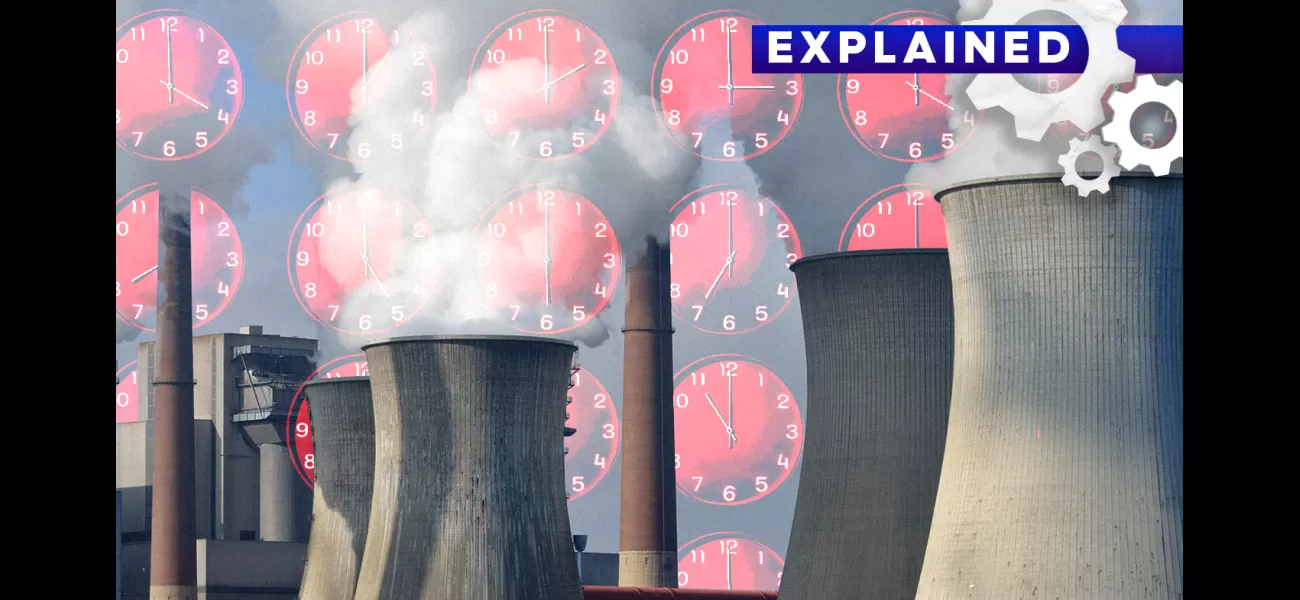The major uncertainty that will result in billions of dollars in expenses for Australians.
How much time does the world have to prevent catastrophic impacts of climate change?
July 30th 2024.

Climate change is a major issue that is currently facing humanity. Many experts, such as researchers, advocates, and academics, are urging for immediate action to be taken to combat this crisis before it's too late. The question on everyone's mind is: how much time do we have left to prevent the most severe consequences of a changing climate?
Instead of focusing on whether or not climate change can be stopped altogether, it is more helpful to consider the potential "tipping points" that could lead to a catastrophic shift in our climate. These tipping points include events like ice sheet collapse, permafrost thaw, ocean deoxygenation and acidification, the die-back of the Amazon rainforest, and changes in ocean circulation. According to Katrin Meissner, director of the UNSW Climate Change Research Centre, some scientists also argue that sea ice should be included in this list.
But just how close are we to reaching these tipping points? According to Professor Matthew England from UNSW, this is the "big question" that experts are trying to answer. While we know that these tipping points exist, it is unclear how close we are to reaching them. Some argue that we have already passed the tipping point for the Greenland ice sheet, while others believe we are rapidly approaching other critical points.
One measure that is often referenced is the goal of limiting global warming to 1.5 degrees above pre-industrial levels, as outlined in the Paris Agreement. While we have seen brief periods of this level of warming in recent months, the long-term average temperatures have yet to surpass this threshold. However, Professor England believes that it is only a matter of time before we do. He points out that 2023 has already seen a significant increase in temperatures, and this trend is likely to continue without immediate action.
The unfortunate truth is that climate change cannot be reversed in any meaningful timeframe. The effects we are currently seeing will continue to worsen, and even if we were to stop all carbon emissions today, the damage has already been done. This is because carbon dioxide can linger in the atmosphere for thousands of years, and the methods proposed to remove it are expensive and unproven.
So what can we do to help combat climate change? The most crucial step is to reduce our carbon emissions, which means transitioning away from fossil fuel-powered energy. Luckily, Australia has an advantage in this area, with an abundance of solar, wind, and battery storage options. Professor England stresses the importance of not giving up on climate targets, even if it seems like we are on track to exceed the 1.5-degree threshold. Every effort to reduce emissions can make a difference, and it is crucial to continue pushing towards a low carbon or net zero carbon future.
If we do nothing to stop climate change, the consequences will be disastrous. The most vulnerable countries and populations will be hit the hardest, but eventually, everyone will feel the effects. Some of these tipping points could have significant impacts on the world, such as rising sea levels, more severe storms, and extreme weather events. In Australia, we can expect more severe droughts, bushfires, and cyclones. These events not only pose a physical danger but also come with a significant financial burden in terms of adapting to these changes and increased insurance costs.
The longer we wait to take action, the more it will cost us in the long run. Every half-degree of warming will lead to more extreme weather events and natural disasters, and the cost of building and maintaining infrastructure to protect against these events will only increase. It is essential to address climate change now, as it will only become more challenging and costly to do so in the future.
Instead of focusing on whether or not climate change can be stopped altogether, it is more helpful to consider the potential "tipping points" that could lead to a catastrophic shift in our climate. These tipping points include events like ice sheet collapse, permafrost thaw, ocean deoxygenation and acidification, the die-back of the Amazon rainforest, and changes in ocean circulation. According to Katrin Meissner, director of the UNSW Climate Change Research Centre, some scientists also argue that sea ice should be included in this list.
But just how close are we to reaching these tipping points? According to Professor Matthew England from UNSW, this is the "big question" that experts are trying to answer. While we know that these tipping points exist, it is unclear how close we are to reaching them. Some argue that we have already passed the tipping point for the Greenland ice sheet, while others believe we are rapidly approaching other critical points.
One measure that is often referenced is the goal of limiting global warming to 1.5 degrees above pre-industrial levels, as outlined in the Paris Agreement. While we have seen brief periods of this level of warming in recent months, the long-term average temperatures have yet to surpass this threshold. However, Professor England believes that it is only a matter of time before we do. He points out that 2023 has already seen a significant increase in temperatures, and this trend is likely to continue without immediate action.
The unfortunate truth is that climate change cannot be reversed in any meaningful timeframe. The effects we are currently seeing will continue to worsen, and even if we were to stop all carbon emissions today, the damage has already been done. This is because carbon dioxide can linger in the atmosphere for thousands of years, and the methods proposed to remove it are expensive and unproven.
So what can we do to help combat climate change? The most crucial step is to reduce our carbon emissions, which means transitioning away from fossil fuel-powered energy. Luckily, Australia has an advantage in this area, with an abundance of solar, wind, and battery storage options. Professor England stresses the importance of not giving up on climate targets, even if it seems like we are on track to exceed the 1.5-degree threshold. Every effort to reduce emissions can make a difference, and it is crucial to continue pushing towards a low carbon or net zero carbon future.
If we do nothing to stop climate change, the consequences will be disastrous. The most vulnerable countries and populations will be hit the hardest, but eventually, everyone will feel the effects. Some of these tipping points could have significant impacts on the world, such as rising sea levels, more severe storms, and extreme weather events. In Australia, we can expect more severe droughts, bushfires, and cyclones. These events not only pose a physical danger but also come with a significant financial burden in terms of adapting to these changes and increased insurance costs.
The longer we wait to take action, the more it will cost us in the long run. Every half-degree of warming will lead to more extreme weather events and natural disasters, and the cost of building and maintaining infrastructure to protect against these events will only increase. It is essential to address climate change now, as it will only become more challenging and costly to do so in the future.
[This article has been trending online recently and has been generated with AI. Your feed is customized.]
[Generative AI is experimental.]
0
0
Submit Comment





